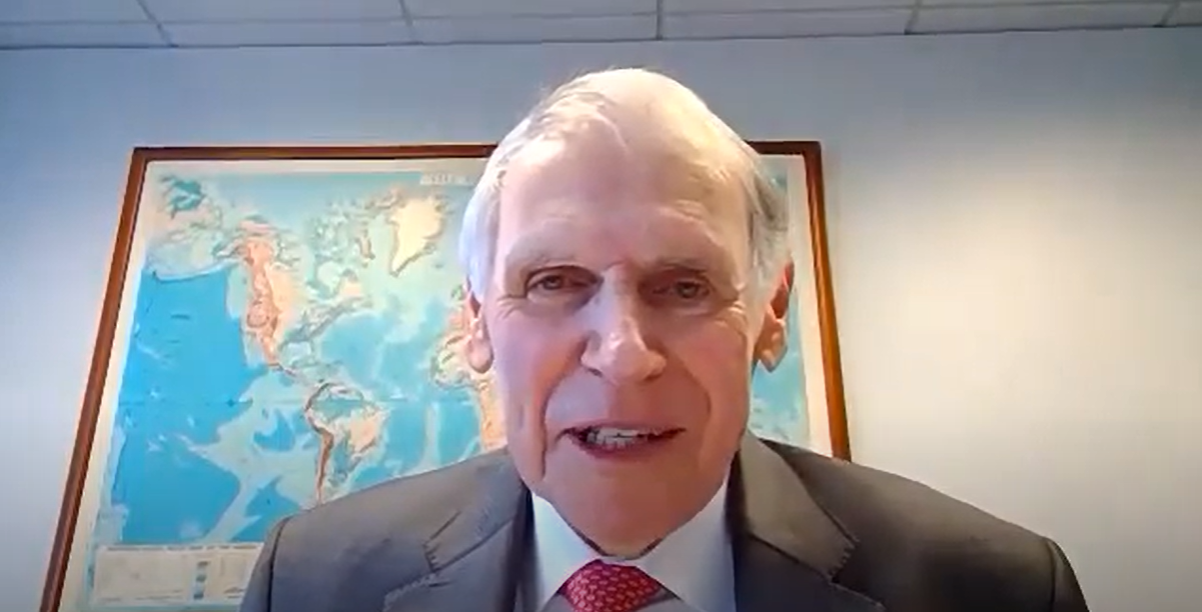
Event Recap: Thinking Cleary About the ‘Infinite Game’: A Look at Great Power Competition Over the Next Administration
On January 14th, the American Security Project (ASP) hosted a virtual seminar as part of its series “Looking Beyond the First 100 Days: Challenges and Opportunities for a New Biden Administration”. ASP COO Andrew Holland moderated a discussion between Congressman Don Bacon (R-NE) and ADM William Fallon, USN (Ret.) on the future of great power competition and what to expect from the new presidential administration.
ADM Fallon began the discussion by reiterating that the US is still the global preeminent power, but that recent years have shown how Russia and China have been expanding their influence relative to the United States. Congressman Bacon noted how the military was restructured in the Trump administration, and that defense spending levels should maintain with inflation rates so that progress on operational readiness can continue.
Both gentlemen reiterated the strategic importance of strengthening our relationship with Allies, and the importance global multilateral relationships between allied nations in curbing the expansion of Chinese and Russian influence on the global stage. They also both detailed the need for a concerted whole-of-government and private sector approach, especially in regards to cybersecurity and technical leadership.
The Q&A portion of the event built upon this sentiment, when Holland asked how the US can better enact this ‘whole of society’ approach to curb competition from the great powers like Russia and China. He was interested to hear how we focus society and the private sector into the global competition.
Congressman Bacon noted how this is a distinctly American challenge, because American society is a little more ‘Jacksonian’ and inward facing. He continued to note that, because the US is a representative democracy and not autocratic like Russia or China, a response would perhaps be difficult to coordinate, but would almost certainly be more dynamic. The regime of President Xi may have galvanized the Chinese society to expand their global influence, but creativity and a dynamic response would more likely arise from the United States.
ADM Fallon continued by noting that this converted effort can be achieved by a top-down strategy that the President and his administration sets, with the whole government and private sector following suit. He also continued by noting that competition does not preclude cooperation. Domestically, China is in the process of converting coal-based heat to natural gas-based heat, but they do not currently have enough natural gas to meet the increased demand. The US has ample natural gas supplies, and ADM Fallon’s view is that tradeoffs can be conducted without diminishing national priorities or beliefs in a world that is becoming increasingly interdependent.
Holland moved forward asking a question about the technologies in which the military could invest to expand their influence.
Both ADM Fallon and Congressman Bacon noted how there has been a major paradigm shift since the end of WWII, in that the private sector is almost completely fostering new technology development through startups today while new technology was primarily government sponsored historically. They both detailed how important Science, Technology, Engineering, and Mathematics (STEM) education is to the upkeep and further development of these technologies, and they encouraged young people to continue to pursue these courses of study.
Holland then posed a question following upon the strategy the US should employ with allied nations to expand its influence.
ADM Fallon noted how it will be important to rebuild trust with our allies, especially after our credibility has diminished in the past few years. He also noted how creating further multilateral relationships, especially between nations in Southeast Asia, could be instrumental in gaining influence and authority in the region.
The session closed with both Congressman Bacon and ADM Fallon expressing concern that partisanship in domestic US politics is one of the largest threats to US influence. The key to restoring the national image is to find common ground and work across the aisle. What attracts people to America are its values, so when US policymakers work together, its global influence grows.





